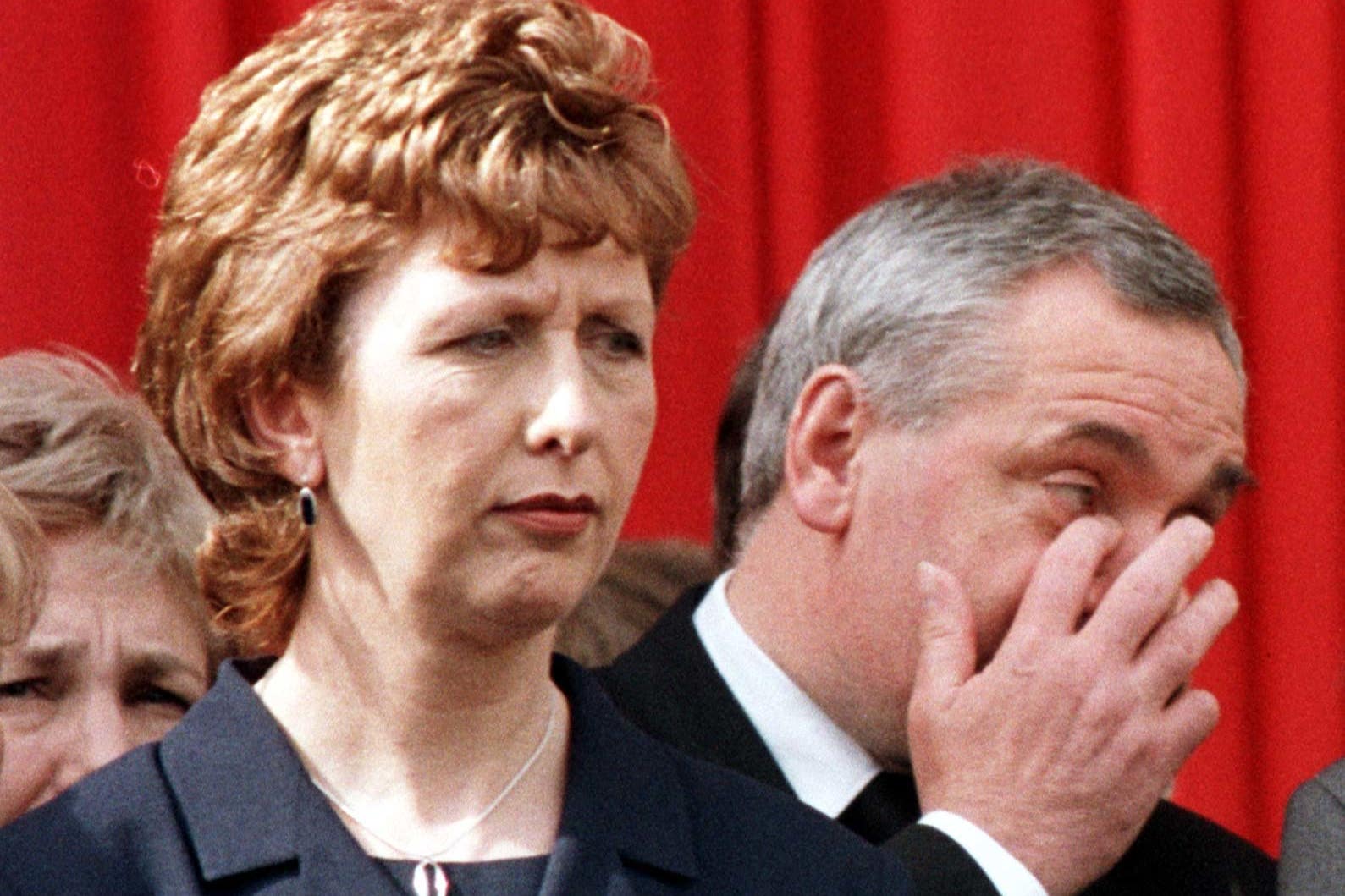British official had concerns about Mary McAleese at Omagh event without Queen
An Irish diplomat said then-prime minister and Tony Blair and Queen Elizabeth II could face ’embarrassment’ by not attending the memorial.

Your support helps us to tell the story
From reproductive rights to climate change to Big Tech, The Independent is on the ground when the story is developing. Whether it's investigating the financials of Elon Musk's pro-Trump PAC or producing our latest documentary, 'The A Word', which shines a light on the American women fighting for reproductive rights, we know how important it is to parse out the facts from the messaging.
At such a critical moment in US history, we need reporters on the ground. Your donation allows us to keep sending journalists to speak to both sides of the story.
The Independent is trusted by Americans across the entire political spectrum. And unlike many other quality news outlets, we choose not to lock Americans out of our reporting and analysis with paywalls. We believe quality journalism should be available to everyone, paid for by those who can afford it.
Your support makes all the difference.A British official expressed concern that Irish president Mary McAleese would be at a memorial service for the victims of the Omagh bombing when Queen Elizabeth II was not attending.
Twenty-nine people, including a woman pregnant with twins, were killed when a car bomb exploded in the Co Tyrone town in 1998.
It was the worst loss of life in a single incident in Northern Ireland’s troubled past, and came just months after the historic Belfast/Good Friday Agreement.
A memorial service in honour of the victims was planned a week after the bombing.
On August 21 1998, the day before the event, Irish Embassy official Philip McDonagh was called to the Foreign Office to discuss Irish premier Bertie Ahern and president Mary McAleese’s attendance.
A note sent from the London embassy to Ireland’s Department of Foreign Affairs suggested that George Fergusson, the head of the Ireland department within the UK’s Foreign Office, had gently encouraged the country not to send such senior representatives to the ceremony.
He suggested that a formal memorial service would be announced “within less than 24 hours” that would be attended by the British monarch and then-UK prime minister Tony Blair, which would allow the taoiseach and president to withdraw from the first event despite having confirmed their attendance.
Mr Fergusson appeared to suggest that locals were against “high level” attendance at the memorial.
Mr McDonagh replied that based on soundings they had taken, the “contrary” was the case, and said that Mr Ahern’s and Mrs McAleese’s plans had already been announced, and “substantive” meetings were likely to take place around the visit.
Mr Fergusson then said that Mr Blair and the Queen could face “embarrassment” by not attending, to which Mr McDonagh replied they had received “nothing but praise for their gestures of sympathy”.
He added that he could not see British figures “attracting criticism on grounds of protocol”.
Mr Fergusson then admitted he was more concerned about the Queen’s absence rather than the prime minister.
He said it was not practical to send a senior royal to Omagh as it could “detract from the ceremony itself”, and said if a “less prominent member” were sent it could appear “inadequate if President McAleese is present”.
He suggested a “compromise”, where Mr Ahern would attend but Mrs McAleese would not, to which Mr McDonagh said he was “uncomfortable” with the use of the word “compromise in a matter of this kind”, which Mr Fergusson accepted.
In a comment on the correspondence sent to Ireland’s Department of Foreign Affairs, Mr McDonagh added that he felt Mr Fergusson implied that the taoiseach’s attendance was “in some sense in the gift of the British government”.
Mr McDonagh said that he was “deliberately not taking this point”.
Mrs McAleese and Mr Ahern attended the memorial service the following day.
[Based on files in 2022/45/423, 2022/45/424 and 2022/45/426]